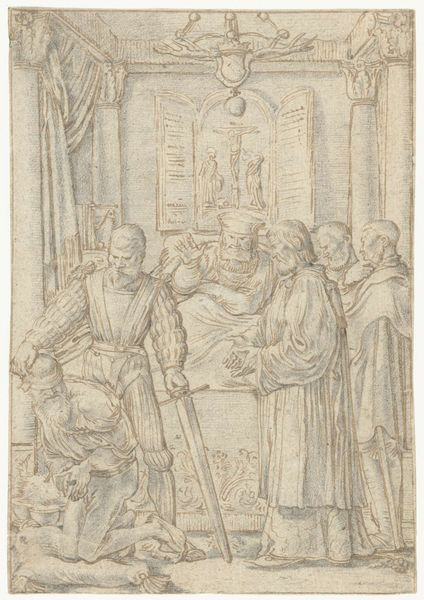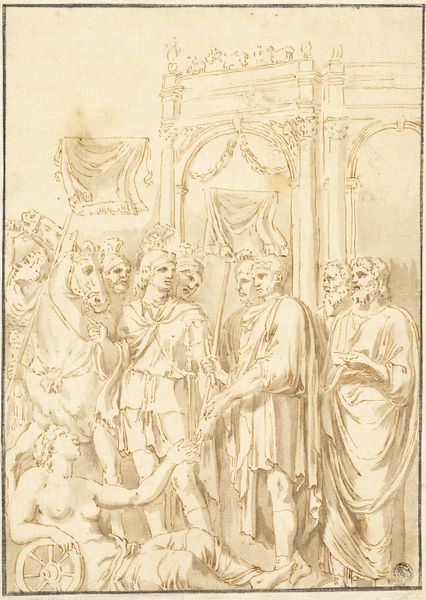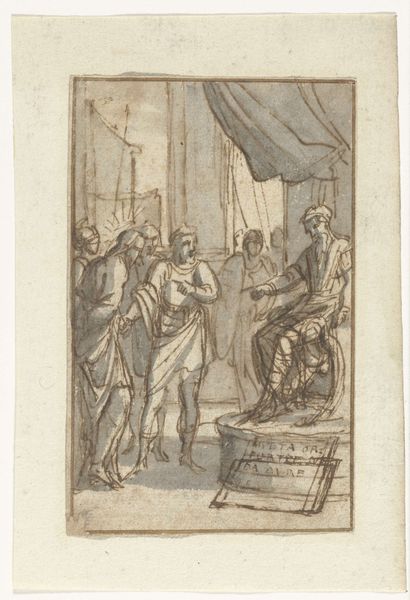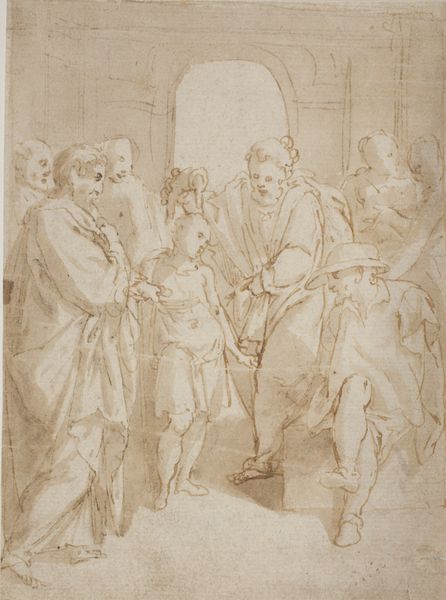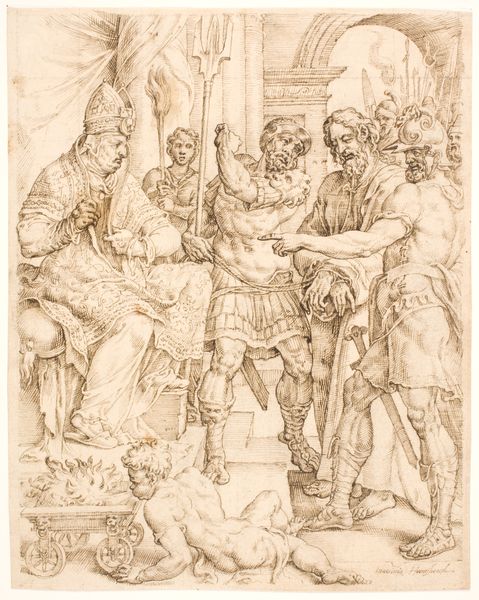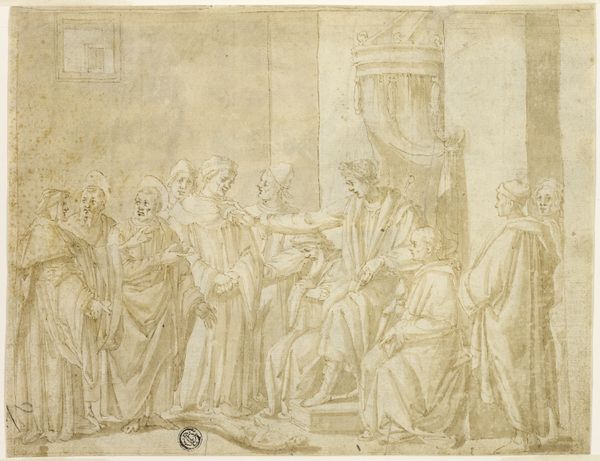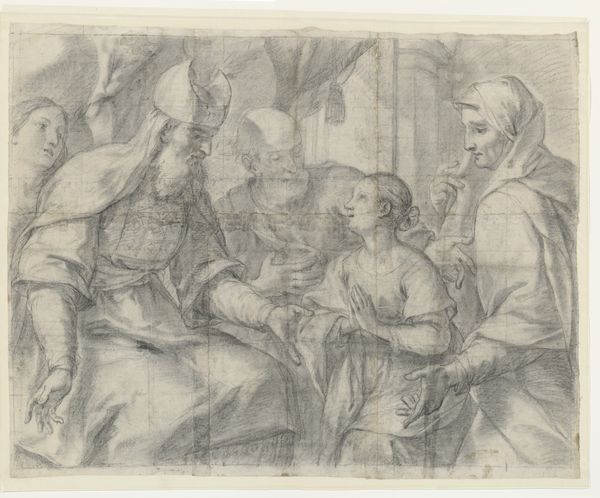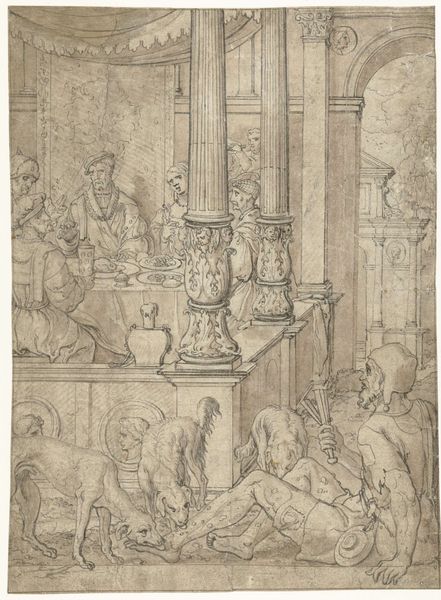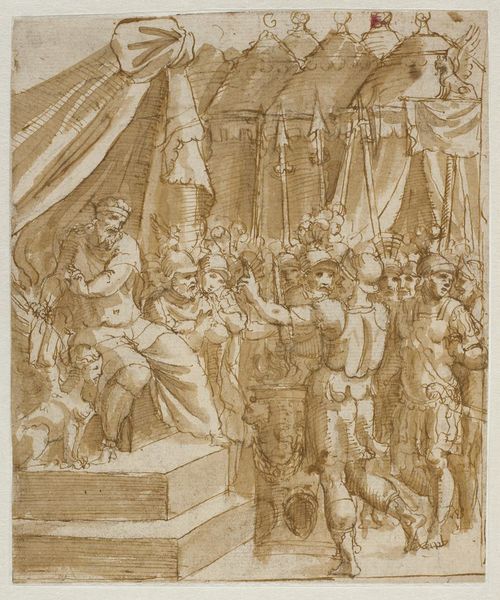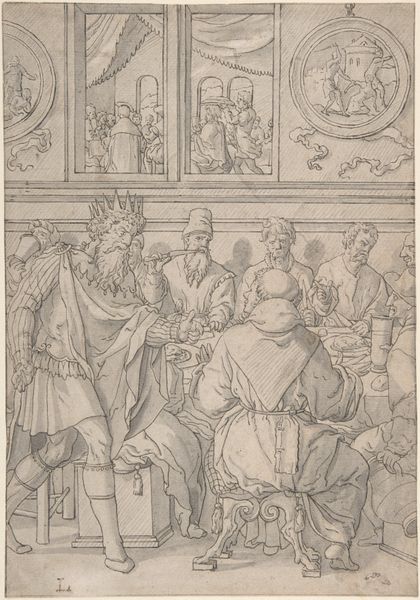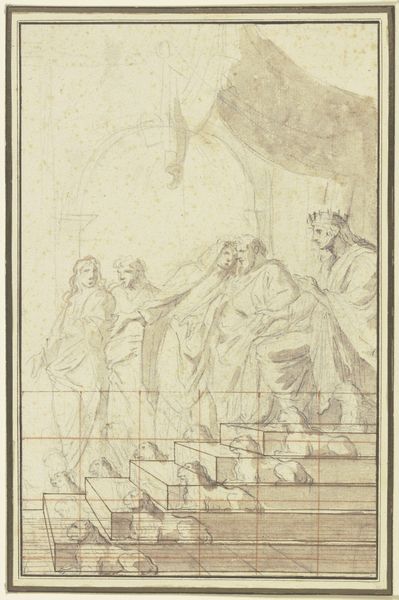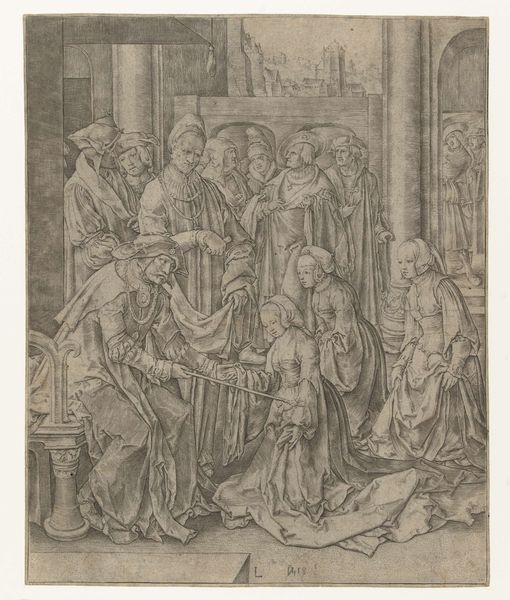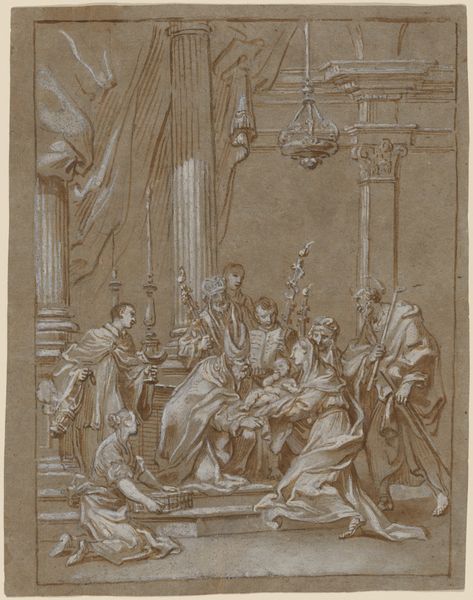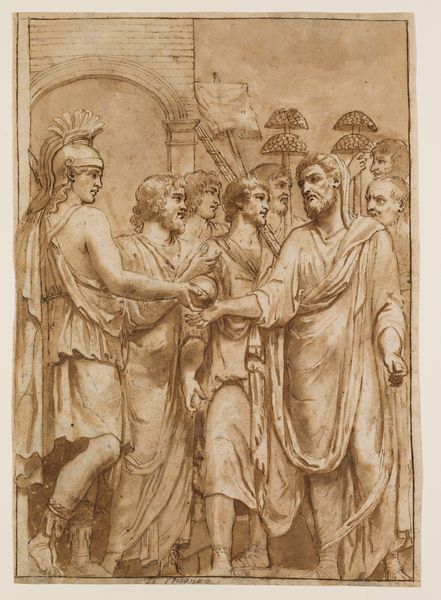
drawing, ink, pen
#
drawing
#
narrative-art
#
baroque
#
dutch-golden-age
#
pen sketch
#
etching
#
ink
#
pen
#
genre-painting
Dimensions: height 160 mm, width 107 mm
Copyright: Rijks Museum: Open Domain
Willem Buytewech made this drawing in the early 17th century, using pen and brown ink, with a brown wash over graphite, on paper. Buytewech’s choice of drawing as a medium is notable, as it is a process of direct engagement and control. The artist lays down each line and tone, building the image from the ground up. This is especially evident in the intricate detailing of the fabrics and architectural elements, all rendered through careful hatching and cross-hatching. This tactile method results in a visual experience that emphasizes the labor and time invested in its creation. The paper support itself is also significant. Paper was becoming increasingly available in the 17th century, reflecting the growth of literacy and the spread of information. By choosing this relatively accessible material, Buytewech perhaps signals a desire to engage with a wider audience. This contrasts with the grand subject matter of the drawing, which depicts a peasant petitioning a count, highlighting the tensions between social classes. Ultimately, the work's power lies not only in its narrative, but also in its material presence, which adds layers of meaning to the image, challenging our traditional understanding of fine art.
Comments
No comments
Be the first to comment and join the conversation on the ultimate creative platform.
